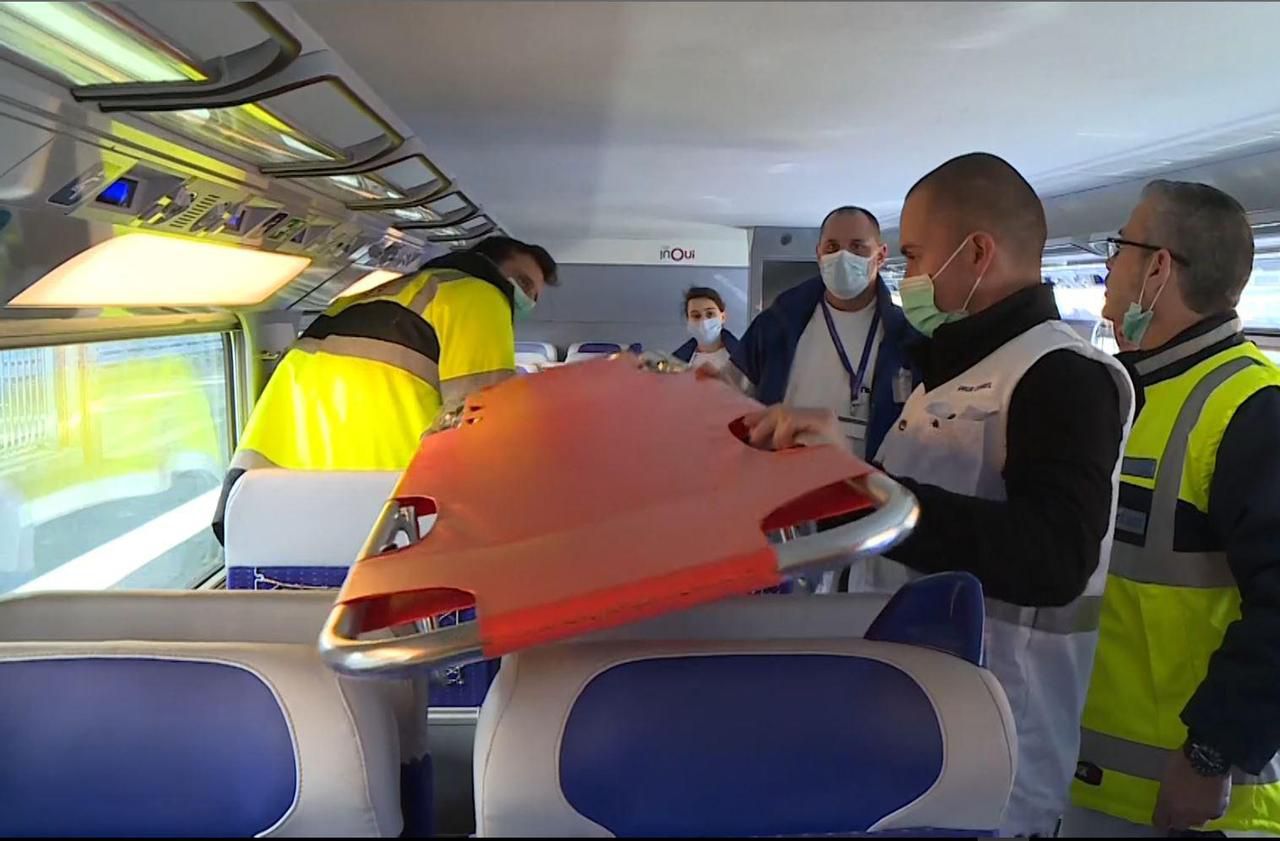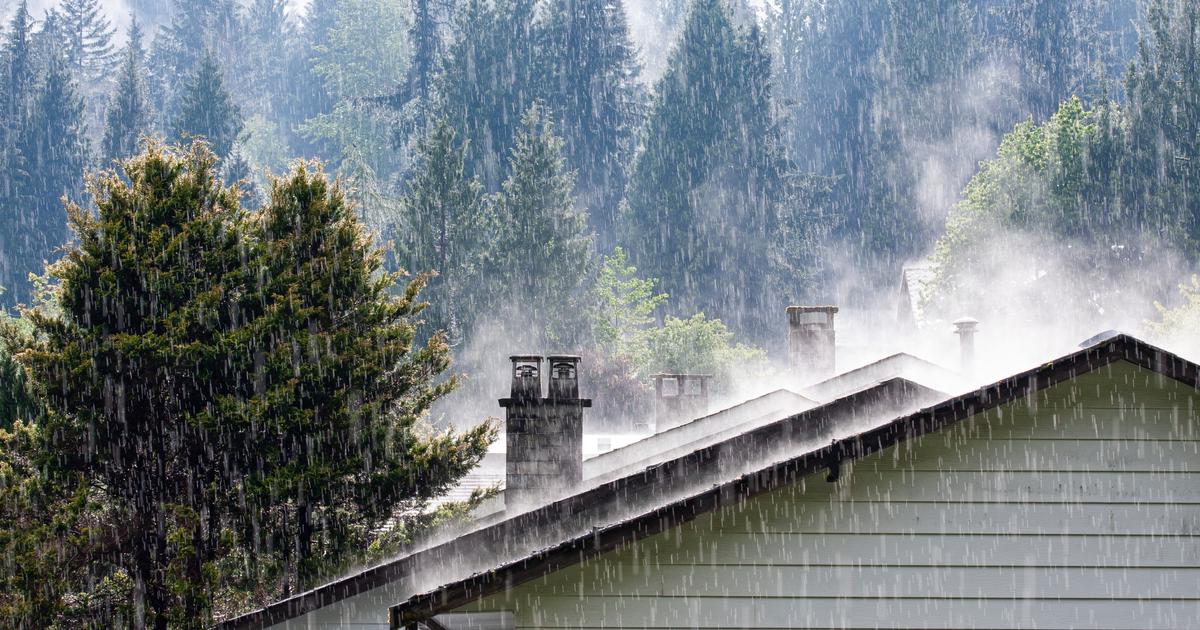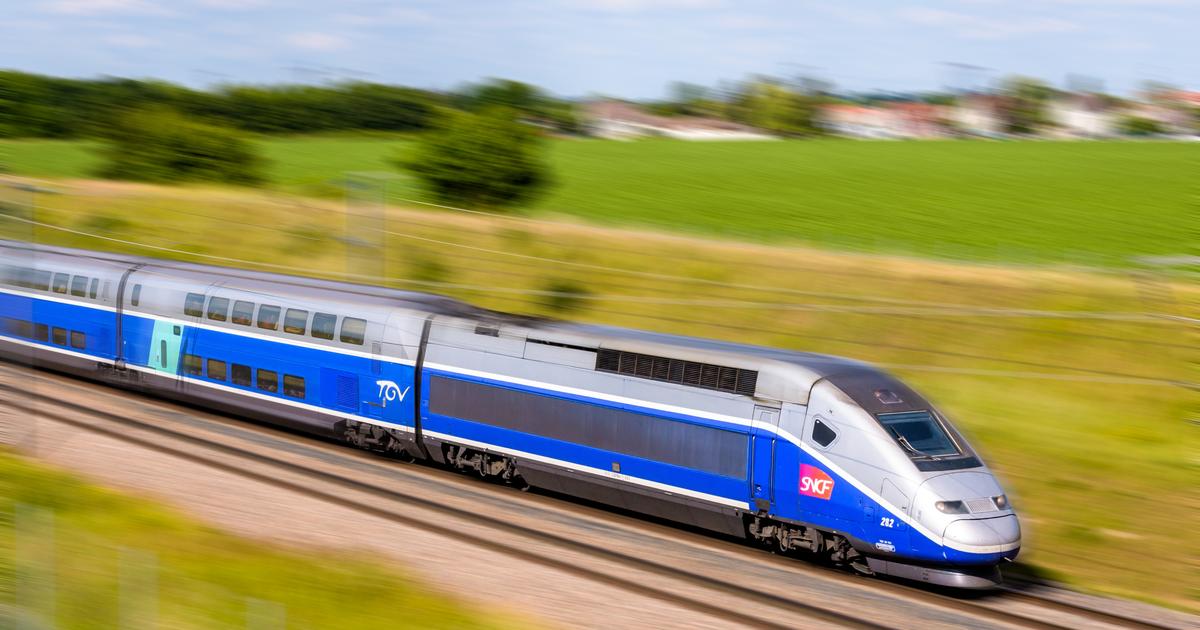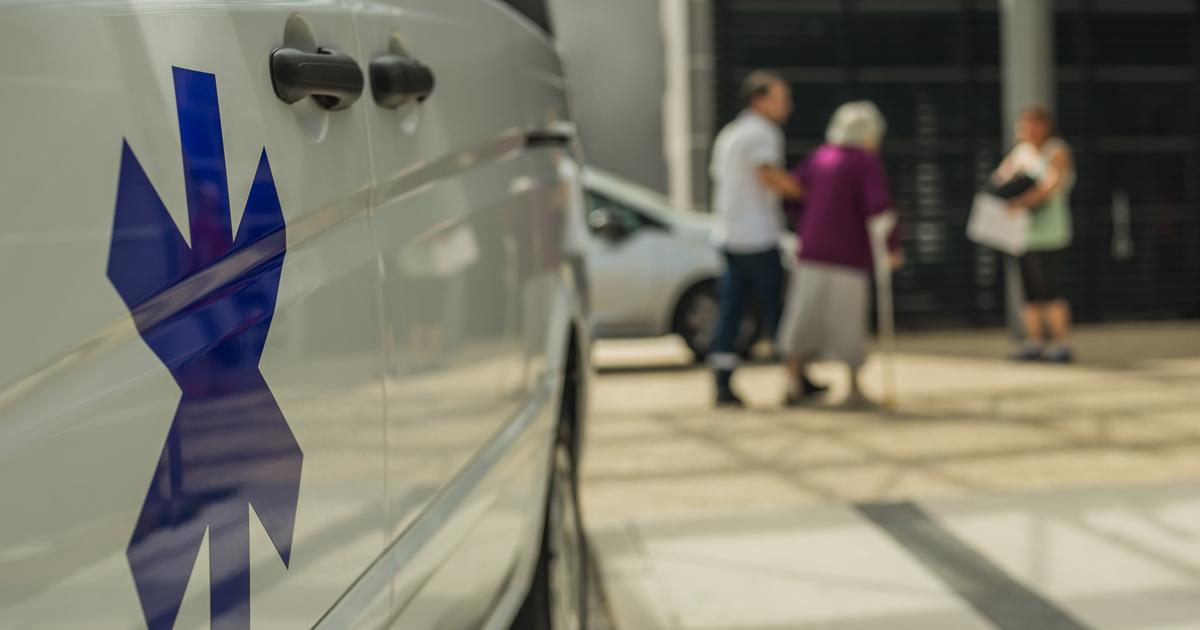By plane, by boat and now by train. To unclog hospitals in the Grand Est region, the epicenter of the coronavirus epidemic in France, a TGV will evacuate this Thursday 20 patients to the west of France. A medical evacuation by rail not seen since the Second World War. "This train will be a high priority," says one within the SNCF. It will be followed minute by minute by the National Center for Railway Operations (CNOF). Like when we transport the President of the Republic or nuclear waste. "A choice which however" is debated ", especially from a health source in the Grand Est, where it is estimated that this operation" is quite risky, given the fragility of the passengers ".
The train will run at 320 km / h
The train will leave from Strasbourg station (Bas-Rhin) at 10.50 a.m. and arrive in Nantes (Loire-Atlantique) at 6.05 p.m. Or more than seven hours of travel to cover the 800 km. Two hours more than normal, since the train will make a stop at Angers station (Maine-et-Loire) to disembark half of the patients there. "These are all serious cases," said the Ministry of Health. They are in intensive care. They will be dispatched between the Angers, Nantes, Le Mans (Sarthe) and La Roche-sur-Yon (Vendée) teaching hospitals. ”
For this non-standard transport, the TGV will run at its commercial speed on high-speed sections, in other words around 320 km / h. "The concept was validated last year, in May," said the company. During the annual disaster medicine exercise, which brought together 400 people to simulate a terrorist attack, the Samu de Paris had brought up to date the mobile hospital rail unit. In a video shot at the time, Pierre Carli medical director of the Samu de Paris, justified this initiative: “Rehabilitating the concept of the medical train […] can be something interesting. We took the example of a terrorist attack, but there may be victims of technological disasters or victims of epidemics […] ”.
200 railway workers mobilized
Warned of this evacuation 48 hours ago, the company mobilized around two hundred railway workers. This will include securing boarding and disembarking at stations in Strasbourg, Nantes and Angers to avoid patients meeting passengers. And to be prepared for all eventualities: “On the route, every 200 km to 300 km, there are diesel locomotives ready to tow the TGV if it breaks down, explains Pierre Meyer, national director of operations at SNCF. They are already heating up. And on board, we will have five railway workers. "
The TGV driver will be accompanied by two other drivers to replace him in the event of a problem. And in addition to the controller, mandatory in a TGV to ensure passenger safety, a railroader specializing in electrical systems will be on board ready to intervene in the event of a breakdown. "Above all, there will be two TGV trains attached to each other," continues Pierre Meyer. The first will pull the convoy and run empty. While in the second will be installed the patients. If the first train hits something or breaks down, we pick up and the second starts again. "
30 healthcare professionals for 20 patients
In this second train, each car will carry four patients, lying on stretchers, installed above the seats of the TGV, accompanied by their medical team. It is made up of an anesthesiologist-resuscitator, an intern, a nurse anesthetist and three nurses. A total of 30 healthcare professionals for 20 patients. "Everything is planned," says Pierre Meyer. The health equipment is connected to the battery and in the event of a breakdown, the TGV has an autonomy of two hours. We are ready ".
Still, this first medical evacuation by TGV creates a stir. "This solution was imposed by Paris," squeaks a health source. Why go so far? Perhaps we could have found a closer solution. "
In any case, at SNCF, we are ready for other evacuations: "It is a source of pride," confides this TGV driver, who wishes to remain anonymous. It's our job, it's public service. "
“It pays me” newsletter
The newsletter that improves your purchasing powerI'm registering
Your email address is collected by Le Parisien to allow you to receive our news and commercial offers. Find out more
Edouard Philippe: "The French must prepare for a long effort"















